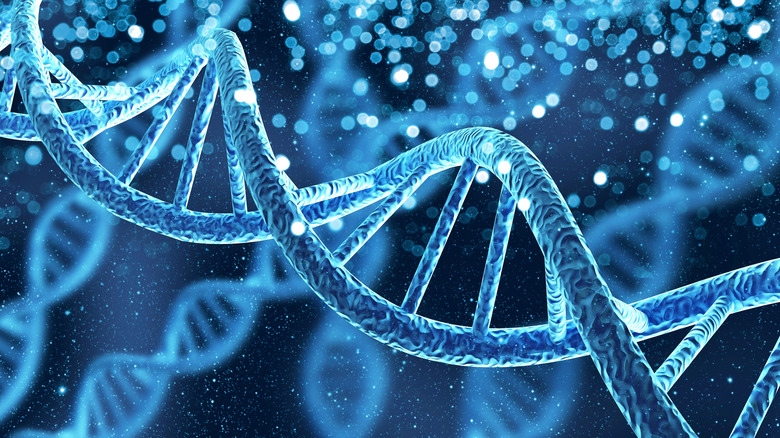Lupus Gene Discovery Could Lead To Improved Treatments
Diagnosis of an autoimmune disease can be crushing, and lupus is no exception. The Food and Drug Administration (FDA) has only approved 1 new treatment for lupus in the past 60 years, but new research may have found a genetic link that could change the way this incurable disease is viewed and treated (via WebMD).
Lupus is an autoimmune condition that most often affects the joints, skin, and internal organs like your heart and kidneys (via Lupus Foundation of America). It can cause inflammation and pain in any part of the body, so symptoms can be different for everyone. It's most common in women — in fact, 9 out of 10 cases of lupus are in women. You're more at risk for developing lupus if you're a woman between the ages of 15 and 44, have a family member with lupus or another autoimmune disease, or are African American, Asian American, Hispanic/Latino, Native American, or a Pacific Islander. Some common symptoms include fatigue, joint pain, and a butterfly rash that spreads across the cheeks and nose. Symptoms may come and go and also change over time. While the cause of lupus isn't known, experts think it may have to do with responses to hormones, running in families, environmental triggers, and genetic factors.
How genes may play a role
In a new study published in Nature, researchers studied the DNA of a girl named Gabriela who was diagnosed with severe lupus at the age of 7, which is rare (via ScienceDaily). Her early onset symptoms indicated to scientists that there must have been a single genetic cause of her disease. They found a mutation in the TLR7 gene, which is normally responsible for fighting off infections. When it becomes too activated, it can result in an attack on the body's immune system. Scientists confirmed the findings on mice, who developed lupus after being introduced to the gene.
This research is important for finding new treatments for lupus, which currently has no cure (via WebMD). Scientists are now working with drug companies to find new treatments or repurpose current ones that focus on the TLR7 gene. Gabriela, who is now a teenager, said that she hopes this new research will bring hope to those fighting lupus and will be a reminder that they're not alone.


